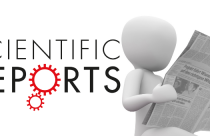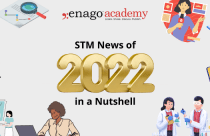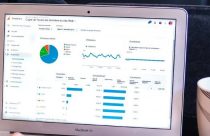Compromised Research? EPA Science Advisor Offers Industry Input in Journal Articles

Ongoing revelations that scientific misconduct exists throughout the academic community have shaken the research community throughout 2018. Fabrication of data, deliberate misrepresentation of data collection practices, and the falsification of images are just a few cases of scientific misconduct that have come to light. However, increased awareness of misconduct has come with increased efforts to prevent it. However, recently a committee head at the US-based Environmental Protection Agency (EPA) allowed industry-funded advisors to edit articles prior to publication. In today’s article, we look at what this means for the scientific community.
Government Science Advisors in Industry’s Pocket?
Actions such as the falsification of data are easy to point to as misconduct. However, the relationship between funding sources, research motivations, and objectivity of scientists is much murkier. This week, news broke that the planned major review of air pollution standards by the EPA would be led by a researcher who has allowed an industry group to edit his previous research. Former EPA Administrator Scott Pruitt appointed researcher Tony Cox as chairman of the Clean Air Scientific Advisory Committee. His appointment occurred during a push by Pruitt to “balance” the makeup of the boards by eliminating EPA-funded scientists and inviting industry-funded scientists to join.
Cox published the research paper in Critical Reviews in Toxicology in 2017. This journal has a reputation for publishing industry-funded work occasionally cited to argue against government regulations. In his paper, he examined the causal relationship between air pollution and human health consequences. The research was financed by the American Petroleum Institute (API). The API has spent millions of dollars arguing against the evidence linking particulate matter and threats to public health. Interestingly, even Cox acknowledged that in a paper he wrote last year he allowed the API to copy edit his findings before they were published.
Misconduct, or Just Bad Optics?
Is allowing a funding organization to edit research misconduct, or is it just bad optics? Other scientists point out that offering an industry group, or any research funding organization, the opportunity to influence the outcome of research is extremely unusual. Cox claims that API made no edits that changed the substance of his research, and that it was his decision whether or not to incorporate their feedback. He maintains that the opinions of his funders did not influence any outcomes.
But Gretchen Goldman, research director for the Center for Science and Democracy at the Union of Concerned Scientists, emphasizes that this is not the biggest problem. She says that even small changes could make research into a friendlier vehicle for the industry’s message. This may then cast doubt on the trustworthiness of research.
Public Confidence in Science
While this action may not qualify as scientific misconduct per se, it highlights a worrisome trend for the research community. Pruitt’s characterization of EPA-funded scientists as “biased”, compared to the industry-funded researchers he replaced them with, poses an interesting question. Are researchers impacted by their funders, or do funders seek researchers whose interests align with their own? Regardless of which side you agree with, it seems clear that those with a financial stake in the results of research studies are more likely to have an interest in influencing results. The public will not be able to trust the science conducted by government agencies. As a result, the research community will face many more problems in 2019 than it does now.
What do you think of Tony Cox’s admission? Should the public question the motives of scientists funded by industry? Please let us know your thoughts in the comments below.









